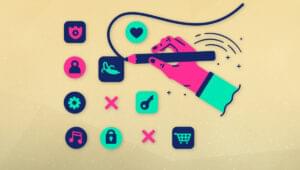 While I was out of the office over the past few weeks, I had to be a little more creative than normal when it came time to checking in on work. Of course, I had my laptop and BlackBerry with me everywhere, but certain areas of the hospital had strict rules prohibiting electronic devices – like the neonatal intensive care unit (NICU), where we spent the majority of our time.
While I was out of the office over the past few weeks, I had to be a little more creative than normal when it came time to checking in on work. Of course, I had my laptop and BlackBerry with me everywhere, but certain areas of the hospital had strict rules prohibiting electronic devices – like the neonatal intensive care unit (NICU), where we spent the majority of our time.
For a few days, I tried to shuffle between the NICU and the family lounge so I could plug in and check on work when the baby was sleeping. That was completely exhausting.
By the time I lugged my stuff out to the lounge, booted up, checked my email and got back to where I was with work the last time I logged in, it was almost time to head back into the nursery. Talk about wasted time, lost productivity and added stress. So I limited my work time to late nights after we left the hospital and early mornings before we started our day.
About halfway through our NICU experience, I decided I was going to go old school and try focusing solely on paper-based work. I thought if I had work I could tackle when I was in the nursery, I would be able to cut down on the back and forth time and really maximize my time with my son, which was my biggest priority.
So, I took some time to write down a list of action items the old fashioned way – with pen and paper. I filled a couple of sheets in my notebook with notes on my to-do’s, ideas and other items that I had been struggling to find time to think through. And off I went to spend the day at the hospital.
Surprisingly, this worked. Not only did I feel more present when I was with my son, but there was a benefit I hadn’t even anticipated – I had an “out” and a way to tune out the craziness around me while the baby was sleeping or with a specialist. I was more relaxed and a lot less stressed because I was where I needed to be, but still able to be somewhat productive.
Of course, it wasn’t like working in full capacity, but that was fine since I hadn’t planned on doing that anyway. And I still had a lot of emails to wade through at night. But overall, being unplugged gave me a new and more flexible way to focus on the one or two top items I outlined each day.
If I ever need to go analog again in the future, I will employ some of these tips which I learned by trial and error:
- Don’t try to capture everything you need to do on paper. Instead focus on just a couple to-do’s that require mostly your thoughts, words and planning and are completely Internet-independent.
- Pack lots of blank paper. I had forgotten how many false starts I typically have when I write (which was most of the work I focused on). It’s much easier to delete and start over on your computer, but I needed extra paper to make it work at the hospital.
- Plan recap time at the end of each day. I’m a messy note-taker, so I tried to take time every night to review what I did during the day and transfer it to my computer where my “real” work was. This helped me gauge what I was getting done and effectively plan my work for the next day.
Overall, it was a learning experience for me, and one that not only helped me capitalize on the patience I was being forced to develop from a personal perspective, but also taught me that unplugging really isn’t as scary as it seems. I might even say it was somewhat pleasant!
Image credit: Ale_Paiva
Alyssa Gregory is a digital and content marketer, small business consultant, and the founder of the Small Business Bonfire — a social, educational and collaborative community for entrepreneurs.

